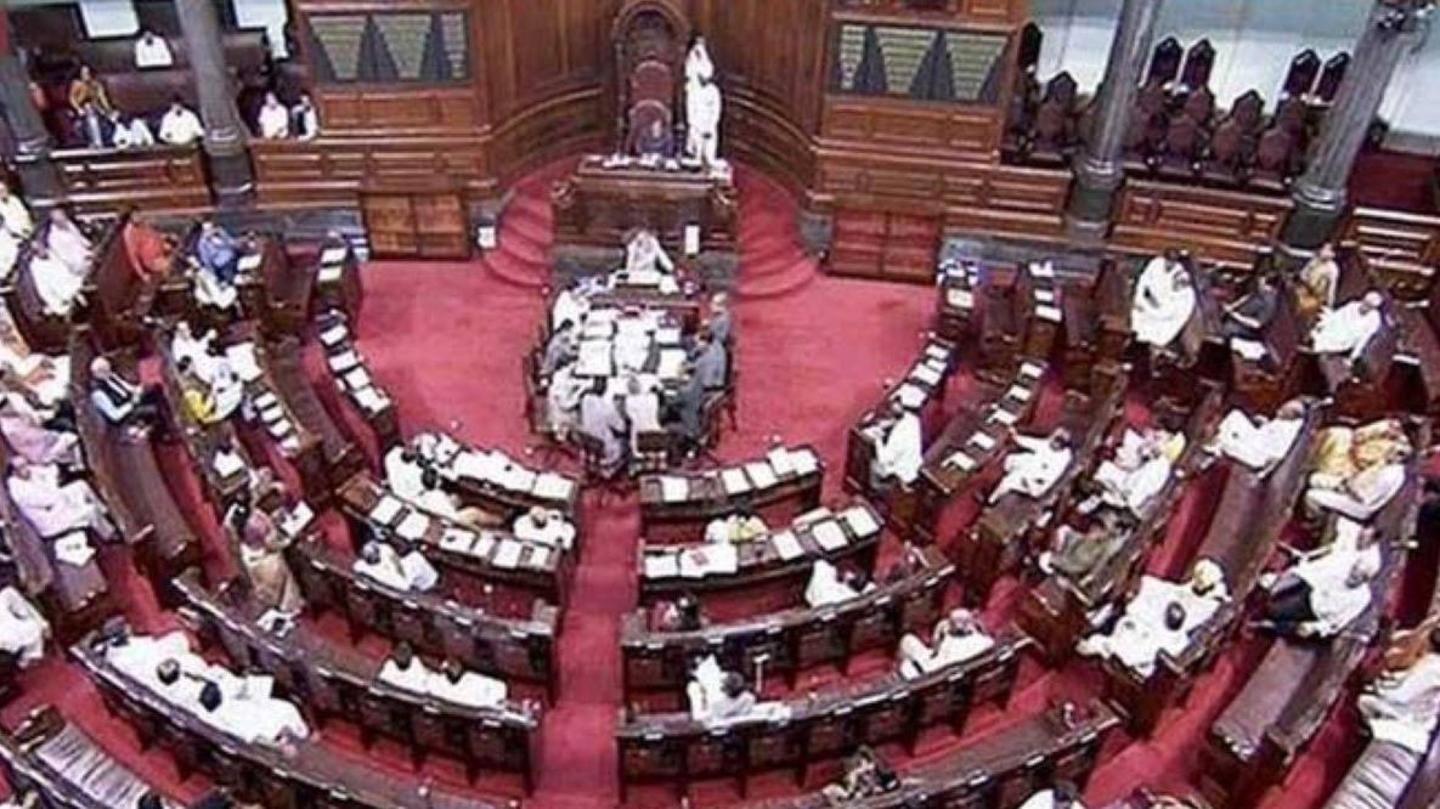
Rajya Sabha passes 3 labor code bills amid Opposition boycott
What's the story
The Rajya Sabha on Wednesday passed three of the four labor code bills, even as the Opposition continued its boycott of the Parliament.
The bills will bring upon labor reforms, making it easier for employers to hire or fire workers and also involve social security.
The Opposition has boycotted the Parliament after the contentious farm bills were passed in an "undemocratic" manner on Sunday.
Details
Bills will provide 'safe environment' for workers
The Rajya Sabha on Wednesday passed The Occupational Safety, Health and Working Conditions Code, 2020; The Industrial Relations Code 2020; and The Code on Social Security, 2020.
The bills had been cleared by the Lok Sabha on Tuesday. They now require President Ram Nath Kovind's assent to become laws.
Junior Labor Minister Santosh Gangwar said the bills will provide a "safe environment" for workers.
Reforms
Reforms will ensure easier compliance with labor standards worldwide
Gangwar said the bills also involve social security benefits, in line with Prime Minister Narendra Modi's resolve for universal social security.
The government has said the reforms will ensure easier compliance with labor standards worldwide, which will aid foreign investment.
Sixteen states have increased the threshold for closure, layoff, and retrenchment in firms with up to 300 workers without government permission, Gangwar said.
Issues
Labor unions say bills make firing workers easier
Labor unions and the Opposition claim the bills make it easier to fire employees and restrict their rights to protest.
The Industrial Relations Code Bill allows companies with up to 300 workers to fire employees without the state government's approval. Currently, this is only allowed for companies with up to 100 workers.
It restricts industrial workers from going on strike without a 60-day notice.
Information
Workers in essential services already require notice before strike
The curb on strikes is currently only applicable to public utility services such as water, electricity, natural gas, telephone, and other essential services. Workers in essential services are not allowed to go on strike without a six-week notice.
Issues
Social security only extended to app-based firm employees: Labor unions
Under the Code on Social Security Bill, social security funds are only extended to workers for app-based firms (Uber, Zomato, etc.).
Labor unions claim these workers remain in a legal gray zone and are treated as independent partners—not covered under most labor laws.
The unions say the health and occupational safety bill is not universal, applying only to workers in factories, mines, and docks.
Information
RSS-affiliated labor union also opposed bills
Notably, the bills are also being opposed by the Bhartiya Mazdoor Sangh (BMS), a labor organization affiliated with the Rashtriya Swayamsevak Sangh (RSS). The RSS is the ruling Bharatiya Janata Party's ideological parent. The BMS has said the bills were passed in a hurry.
Background
Government combined 44 labor laws into four codes
In June 2019, the government had decided to combine 44 labor laws into four codes. The codes involved social security, occupational safety, health and working conditions, and industrial relations.
This move was aimed at helping foreign companies do business in India, which was crucial considering the economic slowdown in India.
The Code on Wages Bill, 2019, has already been passed.
Boycott
Why has Opposition boycotted the Parliament?
Opposition parties had boycotted the Parliament on Tuesday after three days of heated sessions.
On Sunday, the Rajya Sabha had cleared two contentious agriculture bills amid intense protests by farmers and the Opposition.
Rajya Sabha Deputy Chairman Harivansh Narayan Singh had ignored the Opposition's calls to conduct physical voting, and the bills were passed by voice vote.
Protest
Parliamentarians march in protest against 'anti-farmer, anti-worker bills'
MPs of the Congress and other Opposition parties marched from the Gandhi statue to the Ambedkar statue in the Parliament premises on Wednesday.
They are protesting the "anti-farmer, anti-worker bills that have been rubberstamped in Parliament in the most undemocratic manner by the Modi government."
Labor unions protesting against the labor reforms have joined hands with the protesting farmers against the new/proposed laws.